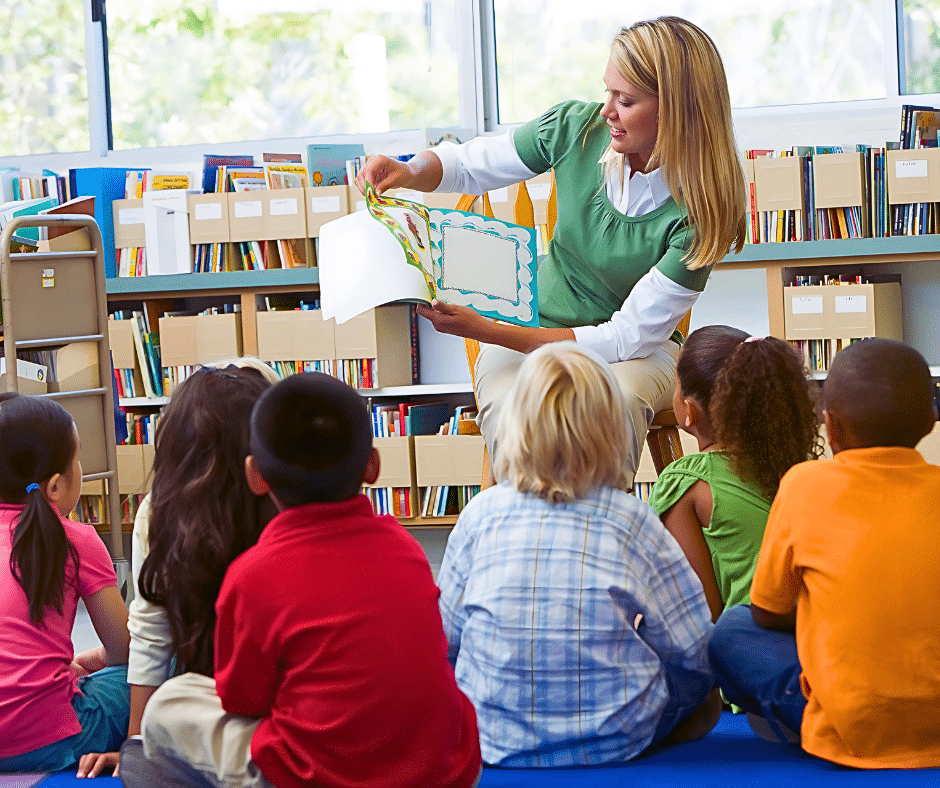Skills to Know When Starting Kindergarten
For many children entering kindergarten, this is their first experience in a school environment. Meanwhile, our Pre-K friends are eagerly stepping into another exciting new school year. While this time is filled with excitement for some, many kindergarteners may face initial challenges as they adjust to longer days, a more structured curriculum, and time spent away from their families.
To help ease any worries—both yours and your child’s—here’s a list of helpful skills that can support a smoother transition into kindergarten. Keep in mind, these are simply suggestions, not strict requirements. After all, learning and growth are exactly what school is for, especially for those just beginning their journey.
Language Skills
-Can start and join in conversations
-Can retell a simple story
-Can recognize words that rhyme
-Is familiar with popular nursery rhymes and can recite them
-Speaks clearly in simple sentences
-Able to use words to communicate their needs and wants
-Can confidently follow two-step directions
-Can recognize and point out common words and signs (e.g., stop signs, traffic lights, the logos of familiar restaurants or cars, etc.)
-Curious about how things work and may ask questions for more details
-Can make comparisons between objects and their relationship to one another (e.g., bigger, under, on top, etc.)
At this age, children are still developing their receptive language skills, so you can support their growth by engaging them in conversations, reading a variety of books, and introducing new vocabulary regularly. These experiences help build a strong foundation for communicating confidently with others at school.
By now, your child’s speech should be mostly clear to you and others. While it’s normal for some sounds—like “r” or “s”—to still be tricky, you should notice steady improvement over time.
If you’re not seeing progress or have any concerns about your child’s speech, don’t hesitate to talk to your doctor or a speech therapist. It’s always better to ask early and, if needed, take action to ensure your child doesn’t face unnecessary challenges later on.
Reading Skills
-Recognizes own name in print
-Comfortable with holding a book correctly and paging through it
-Demonstrates interest in reading and listening to stories
-Able to maintain interest in a short story
-Can name and recognize some uppercase and lowercase letters
-Identifies simple rhyming words
-Your child will dedicate significant time in kindergarten to mastering letters and sounds. They will also learn to blend these sounds to read basic words. The more letters they are familiar with before starting school, the greater their advantage will be.
Math Skills
-Can comfortably count from one to 10 (or higher)
-Able to identify at least three common shapes (this often includes circle, triangle, and square)
-Can match a group of five or fewer items to a number (“She had three eggs.”)
-Familiar with the concept of “adding” and “taking from” items (“I had three bananas. Mommy ate one. Now I have two.”)
-Comfortable with the concept of “less than” and “more than”
-Able to arrange at least three items in order (for instance, from smallest to the biggest or the other way around)
Kindergarten readiness in mathematics focuses on grasping and articulating simple concepts. Mastering these fundamentals lays the groundwork for the more complex math skills your child will encounter in kindergarten and further along their educational journey.
Gross Motor Skills
-Can run smoothly
-Able to hop with one foot
-Can jump with both feet together
-Can bounce a ball and attempt to catch it
-Able to throw and kick a ball
-Able to climb reasonably sized stairs
-Can ride a tricycle
As your child engages in play, they enhance their large muscle groups. This development is crucial for fostering coordination and balance, skills that will benefit them in kindergarten activities.
Fine Motor Skills
-Use a pair of scissors to cut
-Put together a simple puzzle
-Correctly grip a pen, pencil, marker, or crayon
-Copy basic shapes, such as a circle, triangle, a straight line, etc. (These may not be perfectly drawn, but they can keep the general shape or pattern of the basic item they are copying)
-Build a tower using blocks
-Attempt to tie shoelaces, zips, buttons, and buckles
Social Emotional Skills
-Can peacefully separate from parents (it’s perfectly normal if they get upset; the goal should be to separate without getting overly worked up)
-Can pay attention for at least five minutes without interrupting
-Comfortable using phrases like “please,” “thank you,” and “excuse me”
-Able to start and complete a simple activity
-Comfortable asking for help
-Shows respect to peers and can work peacefully with them (takes turns, shares, etc.)
-May occasionally offer to help peers and family members
-Shows respect to adults
-Can follow routines (gets up, uses the bathroom, brushes teeth, gets ready, etc.)
-Attempts to communicate thoughts and feelings through words
-Can regulate emotions without much intervention
-Can participate in cleaning up duties
-Can take responsibility for their belongings (for example, a lunch box)
-Tries out new activities, and if they fail or make mistakes, is willing to try again
Self-Care Skills
-Have healthy (not necessarily perfect!) personal hygiene habits (washing their hands before and after eating, after using the bathroom, etc.)
-Are able to use the bathroom independently
-Can get dressed on their own (even if they still need some help with shoelaces, buttons, etc.)
If you’re still assisting your child with tasks such as using the bathroom or getting dressed, that’s completely normal. However, this is an excellent opportunity to start teaching them how to manage these tasks independently, ensuring they’re ready for kindergarten.
For ideas and tips on developing these skills download the Sparkler app scan the QR code or click on he link to the Apple app store or Google Play store
Use Code: HMGK when creating an account!

